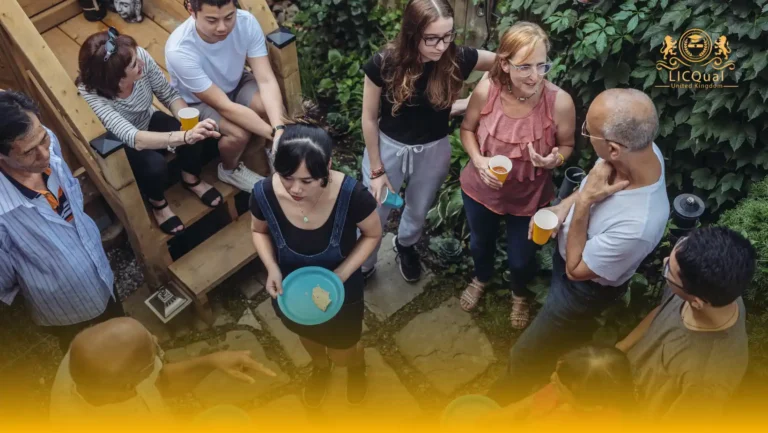The LICQual Level 3 Award in Outdoor First Aid (OFA) is a specialized qualification tailored for individuals who spend time in outdoor, remote, or adventurous environments where immediate medical help may not be readily available. This course equips learners with essential first aid skills to effectively manage emergencies and provide critical care in outdoor settings such as hiking, camping, mountaineering, and outdoor work sites.
Accredited at Level 3, the program follows internationally recognized first aid standards and best practices, ensuring participants gain the knowledge and confidence needed to respond swiftly and competently to injuries and illnesses in the wilderness. Ideal for outdoor professionals, enthusiasts, and remote workers, this award enhances safety preparedness and equips learners to act decisively when seconds count.
The LICQual Level 3 Award in Outdoor First Aid offers practical, scenario-based training focused on real-life outdoor emergencies. The curriculum covers essential topics including risk assessment, casualty management, cardiopulmonary resuscitation (CPR), use of Automated External Defibrillators (AEDs), and treatment of common outdoor injuries such as fractures, bleeding, burns, hypothermia, and dehydration.
Additionally, learners will develop skills to handle environmental hazards like animal bites and stings, as well as strategies for effective communication and incident reporting in remote areas. This qualification is ideal for adventure guides, park rangers, outdoor instructors, and anyone seeking to enhance their outdoor safety skills. Upon successful completion, participants will receive a Level 3 accredited certificate recognized by employers and regulatory bodies, boosting both career opportunities and personal confidence in emergency situations.
Course Overview
Qualification Title
LICQual Level 3 Award in Outdoor First Aid (OFA)
Total Units
6
Total Credits
6
GLH
12
Qualification #
LICQ2200604
Qualification Specification
To enroll in the LICQual Level 3 Award in Outdoor First Aid (OFA), applicants must meet the following criteria:
|
Qualification# |
Unit Title |
Credits |
GLH |
|---|---|---|---|
|
LICQ2200604-1 |
Principles and Role of Outdoor First Aid |
1 |
2 |
|
LICQ2200604-2 |
Scene Assessment and Risk Management |
1 |
2 |
|
LICQ2200604-3 |
Managing Unconscious Casualties and Recovery Position |
1 |
2 |
|
LICQ2200604-4 |
Cardiopulmonary Resuscitation (CPR) and AED Use |
1 |
2 |
|
LICQ2200604-5 |
First Aid for Outdoor Injuries and Medical Conditions |
1 |
2 |
|
LICQ2200604-6 |
Communication, Incident Reporting, and Legal Considerations |
1 |
2 |
By the end of this course, learners will be able to:
Unit 1: Principles and Role of Outdoor First Aid
- Explain the role and responsibilities of an outdoor first aider.
- Describe the importance and scope of providing first aid in outdoor and remote environments.
Unit 2: Scene Assessment and Risk Management
- Demonstrate how to safely assess an outdoor emergency scene.
- Identify potential hazards and manage risks to protect casualties, self, and bystanders.
Unit 3: Managing Unconscious Casualties and Recovery Position
- Recognize signs and symptoms of unconsciousness in casualties.
- Correctly place adults and children in the recovery position in outdoor settings.
- Monitor casualties until professional help arrives.
Unit 4: Cardiopulmonary Resuscitation (CPR) and AED Use
- Perform CPR effectively on adults and children using correct techniques.
- Demonstrate the safe and proper use of Automated External Defibrillators (AEDs).
Unit 5: First Aid for Outdoor Injuries and Medical Conditions
- Identify and provide appropriate first aid for fractures, bleeding, burns, hypothermia, dehydration, and other outdoor-specific injuries.
- Manage animal bites, stings, and other environmental hazards.
- Recognize when to escalate care and seek professional medical assistance.
Unit 6: Communication, Incident Reporting, and Legal Considerations
- Communicate clearly and effectively with emergency services and others involved.
- Accurately record details of incidents and first aid administered.
- Explain legal and ethical responsibilities, including consent and safeguarding in outdoor settings.
This course is ideal for:
- Outdoor Professionals:
Adventure guides, park rangers, forestry workers, and outdoor instructors operating in remote or challenging environments. - Outdoor Enthusiasts:
Hikers, campers, climbers, and anyone regularly engaging in outdoor recreational activities. - Remote and Field Workers:
Employees working in isolated locations such as farms, construction sites, or wilderness areas. - Sports and Activity Leaders:
Coaches, trainers, and leaders of outdoor sports and recreational groups requiring specialized first aid skills. - Volunteers and Emergency Responders:
Individuals involved in community response teams, search and rescue, or volunteering in outdoor settings. - Healthcare and Safety Professionals:
Those seeking to complement their qualifications with outdoor-specific first aid training. - Anyone Interested in Outdoor Safety:
Individuals wanting the confidence and skills to manage emergencies effectively in outdoor environments.
Assessment and Verification
All units within this qualification are subject to internal assessment by the approved centre and external verification by LICQual. The qualification follows a criterion-referenced assessment approach, ensuring that learners meet all specified learning outcomes.
To achieve a ‘Pass’ in any unit, learners must provide valid, sufficient, and authentic evidence demonstrating their attainment of all learning outcomes and compliance with the prescribed assessment criteria. The Assessor is responsible for evaluating the evidence and determining whether the learner has successfully met the required standards.
Assessors must maintain a clear and comprehensive audit trail, documenting the basis for their assessment decisions to ensure transparency, consistency, and compliance with quality assurance requirements.







